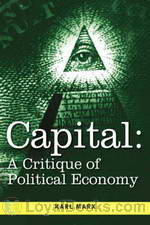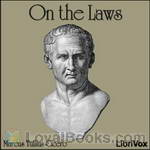|
Books Should Be Free Loyal Books Free Public Domain Audiobooks & eBook Downloads |
|
|
Books Should Be Free Loyal Books Free Public Domain Audiobooks & eBook Downloads |
|
Books on Politics |
|---|
|
Book type:
Sort by:
View by:
|
By: Justin McCarthy (1830-1912) | |
|---|---|
 History of Our Own Times From the Accession of Queen Victoria to the General Election of 1880, Volume IV
History of Our Own Times From the Accession of Queen Victoria to the General Election of 1880, Volume IV
The fourth and concluding volume of this history of Victorian Britain opens with the brutal repression in 1865 of a rebellion by ex-slaves in Jamaica. Then in 1867, the Conservative Prime Minister, Benjamin Disraeli, takes his celebrated "leap in the dark" with the passage of the most comprehensive expansion of manhood suffrage in British history. The Fenian movement agitates unsuccessfully for Irish independence. British trade unions win the right to organize. William Ewart Gladstone launches his great reform ministry by abolishing in Ireland the hated Anglican establishment and follows with a flood of bills reforming education, the British army, and poor relief... | |
By: Karl Marx | |
|---|---|
 Capital: A Critical Analysis of Capitalist Production
Capital: A Critical Analysis of Capitalist Production
Karl Marx’s Capital: A Critical Analysis of Capitalist Production is a critical analysis of the political economy or the capitalist system. In this 3 volume work, he says that a capitalist economy can only survive by exploiting the working class. The concepts discussed in this book laid the foundations of the political doctrine that would later be known as communism. This book has three volumes, the first volume is Marx’s critical analysis of the capitalist mode of production and how it’s effects on poor people... | |
 Wage-Labour and Capital
Wage-Labour and Capital
Orignally written as a series of newspaper articles in 1847, Wage-Labour and Capital was intended to give a short overview, for popular consumption, of Marx’s central threories regarding the economic relationships between workers and capitalists. These theories outlined include the Marxian form of the Labour Theory of Value, which distinguishes “labour” from “labour-power”, and the Theory of Concentration of Capital, which states that capitalism tends towards the creation of monopolies and the disenfranchisement of the middle and working classes... | |
 Eleven Theses on Feuerbach
Eleven Theses on Feuerbach
The “Theses on Feuerbach” are eleven short philosophical notes written by Karl Marx in 1845. They outline a critique of the ideas of Marx’s fellow Young Hegelian philosopher Ludwig Feuerbach. The theses form a basis for the activism emphasised by Marx’s work, and this short text is perhaps best know for its ending – a Eureka for revolutionary socialism. The theses were written in 1845, but not published until 1888 (five years after Marx’s death), with slight modifications by Friedrich Engels. The original text was published in 1924. This translation is based on the 1888 version. | |
 Selected Essays
Selected Essays
| |
 Eighteenth Brumaire of Louis Bonaparte
Eighteenth Brumaire of Louis Bonaparte
| |
 Contribution to the Critique of Political Economy
Contribution to the Critique of Political Economy
As a precursor to Capital, Marx outlines his analysis of capitalism and critiques classical economic theories. - Summary by Tray | |
By: Karl Nordlund (1871-) | |
|---|---|
 The Swedish-Norwegian Union Crisis A History with Documents
The Swedish-Norwegian Union Crisis A History with Documents
| |
By: Katherine Thurston (1875-1911) | |
|---|---|
 The Masquerader
The Masquerader
The Masquerader is one of two Katherine Cecil Thurston’s books that appeared on the Publisher’s Weekly best-sellers list in 1905. The Masquerader is part mystery, part romance and part political thriller – all tied up in one neat package. Nature has a way of sometimes making two people nearly indistinguishable in appearance. Such is the premise for this book. John Chilcote, a British politician, and John Loder, a man down on his luck meet by accident one night during one of London’s worst fogs... | |
By: King of the Hawaiian Islands Kamehameha IV (1834-1863) | |
|---|---|
 Speeches of His Majesty Kamehameha IV. To the Hawaiian Legislature
Speeches of His Majesty Kamehameha IV. To the Hawaiian Legislature
| |
By: L. (Lassa) Oppenheim (1858-1919) | |
|---|---|
 The League of Nations and its Problems Three Lectures
The League of Nations and its Problems Three Lectures
| |
By: L. T. (Leonard Trelawny) Hobhouse (1864-1929) | |
|---|---|
 Liberalism
Liberalism
| |
By: Las Cortes y el Pueblo Español | |
|---|---|
 Constitución Española de 1978
Constitución Española de 1978
Constitución vigente en España actualmente, fruto de la Transición a la democracia tras la muerte de Francisco Franco. (Introducción por AGV) | |
By: Leo Tolstoy (1828-1910) | |
|---|---|
 The Kingdom of God is within you
The Kingdom of God is within you
The title of the book comes from Luke 17:21. It is a non-fiction work of the famous Russian author Leo Tolstoy. He wrote it after many years of reflexion on Christianity and Jesus. Many subjects are present such as wars, non-violence, misunderstanding by believers of the faith, etc. | |
 The Slavery of Our Times
The Slavery of Our Times
This little book shows, in a short, clear, and systematic manner, how the principle of Non-Resistance, about which Tolstoy has written so much, is related to economic and political life. | |
 Bethink Yourselves!
Bethink Yourselves!
As Russia goes to war against Japan, Tolstoy urges those at all levels of society, from the Tsar down to the common soldier, to consider their actions in the light of Christ's teaching. "However strange this may appear, the most effective and certain deliverance of men from all the calamities which they inflict upon themselves and from the most dreadful of all—war—is attainable, not by any external general measures, but merely by that simple appeal to the consciousness of each separate man which, nineteen hundred years ago, was proposed by Jesus—that every man bethink himself, and ask himself, who is he, why he lives, and what he should and should not do... | |
 What Shall We Do?
What Shall We Do?
A vivid description of wealth and poverty in Russia in Tolstoy's day, an inquiry into the root causes of economic inequality, and a vision of a more just way of living.Tolstoy recounts his own disturbing encounters with extreme poverty in Moscow, his initial idea of making the problem disappear by generous financial contributions, and his subsequent realization that the problem of poverty was much more intractable than he had imagined. He concludes that poverty is fundamentally linked with the luxurious lifestyle to which he and his class were accustomed, and that both are detrimental both to the rich and to the poor... | |
By: Louise DeKoven Bowen (1859-1953) | |
|---|---|
 Colored People of Chicago
Colored People of Chicago
This book presents a summary of the findings conducted by the the Juvenile Protective Association in Chicago before the changes brought on by the war-time economy. The study's researchers were A. P. Drucker, Sophia Boaz, A. L. Harris, and Miriam Schaffner. Its author, Louise DeKoven Bowen was a well-known philanthropist and suffragist in Chicago. The summary makes no strong argument on its own, but presents simple facts and observations that would alert the reader to the need for social and economic reform in the city. - Summary by KevinS | |
By: Lyndon B. (Lyndon Baines) Johnson (1908-1973) | |
|---|---|
 State of the Union Address
State of the Union Address
| |
By: M. François Guizot (1787-1874) | |
|---|---|
 Memoirs To Illustrate The History Of My Time Volume 1
Memoirs To Illustrate The History Of My Time Volume 1
| |
By: Marcus Tullius Cicero | |
|---|---|
 The Philippics
The Philippics
A philippic is a fiery, damning speech delivered to condemn a particular political actor. The term originates with Demosthenes, who delivered an attack on Philip II of Macedon in the 4th century BCE.Cicero consciously modeled his own attacks on Mark Antony, in 44 BC and 43 BC, on Demosthenes’s speeches, and if the correspondence between M. Brutus and Cicero are genuine [ad Brut. ii 3.4, ii 4.2], at least the fifth and seventh speeches were referred to as the Philippics in Cicero’s time. They were also called the Antonian Orations by Aulus Gellius... | |
 On the Laws
On the Laws
De Legibus (On the Laws) is a philosophical dialogue between: Cicero's friend Titus Pomponius Atticus; Cicero's brother Quintus; and Cicero himself. The dialogue is written in the style of Plato who was greatly revered by Cicero. De Legibus forms a continuation of Cicero's own work De re Publica (On the Commonwealth or On the Republic) and is also a response to Plato's work Νόμοι (Laws). It is unknown how many books the work originally contained but several complete books have been lost. Cicero's... | |
By: Margaret Fuller (1810-1850) | |
|---|---|
 Woman in the Nineteenth Century and Kindred Papers Relating to the Sphere, Condition, and Duties of Women
Woman in the Nineteenth Century and Kindred Papers Relating to the Sphere, Condition, and Duties of Women
Margaret Fuller (1810-1850) was an American feminist, writer, and intellectual associated with the Transcendentalist movement. Her book Woman in the Nineteenth Century (1845) is considered the first major feminist work in the United States. Her life was short but full. She became the first editor of the transcendentalist journal The Dial in 1840, before joining the staff of the New York Tribune under Horace Greeley in 1844. By the time she was in her 30s, Fuller had earned a reputation as the best-read person in New England, male or female, and became the first woman allowed to use the library at Harvard College... | |
By: Margaret Sanger (1879-1966) | |
|---|---|
 Woman and the New Race
Woman and the New Race
Margaret Sanger was an American sex educator and nurse who became one of the leading birth control activists of her time, having at one point, even served jail time for importing birth control pills, then illegal, into the United States. Woman and the New Race is her treatise on how the control of population size would not only free women from the bondage of forced motherhood, but would elevate all of society. The original fight for birth control was closely tied to the labor movement as well as the Eugenics movement, and her book provides fascinating insight to a mostly-forgotten turbulent battle recently fought in American history. | |
By: Maria W. Stewart (1803-1879) | |
|---|---|
 Meditations from the Pen
Meditations from the Pen
Maria W. Stewart was America's first black woman political writer. Between 1831 and 1833, she gave four speeches on the topics of slavery and women's rights. Meditations From The Pen of Mrs. Maria W. Stewart—published in 1879 shortly before her death—is a collection of those speeches as well as her memoir, some meditations and prayers. They are political, poetical and sermon all at the same time; but in the mileu in which she lectured, they were a critically important part of the abolitionist movement years before the contributions of others such as Frederick Douglass and Sojourner Truth... | |
By: Marie Sukloff (1885-) | |
|---|---|
 Life-Story of a Russian Exile
Life-Story of a Russian Exile
Hero or assassin? Victim or criminal? Marie Sukloff fits no easy category. A young peasant woman who became a political radical and activist, Sukloff carried out an assassination plot against a Russian governor known for murderous pogroms and rampages against the Jews of his province. This mesmerizing autobiographical account tells the story of Sukloff's peasant childhood, radicalization, direct action, exile to Siberia, and escape. She tells her story with a colorful verve, sincerity, intensity, and simplicity that makes it almost impossible to put down, raising questions of political philosophy and responsibility that challenge the complacency of every reader. | |
By: Mark Twain (1835-1910) | |
|---|---|
 The Gilded Age, A Tale of Today
The Gilded Age, A Tale of Today
The Gilded Age: A Tale of Today is an 1873 novel by Mark Twain and Charles Dudley Warner that satirizes greed and political corruption in post-Civil War America. The term gilded age, commonly given to the era, comes from the title of this book. Twain and Warner got the name from Shakespeare's King John (1595): "To gild refined gold, to paint the lily... is wasteful and ridiculous excess." Gilding a lily, which is already beautiful and not in need of further adornment, is excessive and wasteful, characteristics of the age Twain and Warner wrote about in their novel... | |
 Goldsmith's Friend Abroad Again
Goldsmith's Friend Abroad Again
This satire on the U.S.A.'s myth of being the "Home of the Oppressed, where all men are free and equal", is unrelenting in its pursuit of justice through exposure. It draws a scathingly shameful portrait of how Chinese immigrants were treated in 19th century San Francisco. (Introduction by John Greenman) | |
 Anti-imperialist writings
Anti-imperialist writings
This audiobook is a collection of Mark Twain's anti-imperialist writings (newspaper articles, interviews, speeches, letters, essays and pamphlets). | |
By: Martin Van Buren (1782-1862) | |
|---|---|
 State of the Union Address
State of the Union Address
| |
By: Mary Wollstonecraft (1759-1797) | |
|---|---|
 Vindication Of The Rights Of Men, In A Letter To The Right Honourable Edmund Burke; Occasioned By His Reflections On The Revolution In France
Vindication Of The Rights Of Men, In A Letter To The Right Honourable Edmund Burke; Occasioned By His Reflections On The Revolution In France
Wollstonecraft's A Vindication of the Rights of Men attacks aristocracy and advocates republicanism. It was published in response to Edmund Burke's Reflections on the Revolution in France , which was a defence of constitutional monarchy, aristocracy, and the Church of England, and an attack on Wollstonecraft's friend, the Rev Richard Price. Hers was the first response in a pamphlet war that subsequently became known as the Revolution Controversy, in which Thomas Paine's Rights of Man became the rallying cry for reformers and radicals... | |
By: Millard Fillmore (1800-1874) | |
|---|---|
 State of the Union Address
State of the Union Address
| |
 State of the Union Addresses by United States Presidents (1849 - 1856)
State of the Union Addresses by United States Presidents (1849 - 1856)
The State of the Union address is a speech presented by the President of the United States to a joint session of the United States Congress, typically delivered annually. The address not only reports on the condition of the nation but also allows the President to outline his legislative agenda and national priorities. This album contains recordings of addresses from Zachary Taylor, Millard Fillmore, and Franklin Pierce. - Summary by Wikipedia and Linette Geisel | |
By: Miriam Michelson (1870-1942) | |
|---|---|
 A Yellow Journalist
A Yellow Journalist
Rhoda Massey is a young, sharp reporter for a daily newspaper in San Francisco. After proving herself an astute and fearless investigator on her first big story, she spends most of her waking hours running down leads and doing (almost) anything it takes to produce headline grabbing tales and to be the first one to do so. She must compete with her male colleagues where she works but also with those from other newspapers. Rhoda discovers it useful to be pretty and small in stature (great for eavesdropping from tight and unusual locations) but it's her shrewd mind and her nose for news that propel her to pursue stories in dangerous places and, sometimes, from dangerous characters... | |
By: Mohandas Karamchand Gandhi | |
|---|---|
 Third Class in Indian Railways
Third Class in Indian Railways
Mohandas Karamchand Gandhi (1869 – 1948) was the pre-eminent political and spiritual leader of India during the Indian independence movement. He was the pioneer of satyagraha — resistance to tyranny through mass civil disobedience. This philosophy was firmly founded upon ahimsa, or total nonviolence, and led India to independence and inspired movements for civil rights and freedom across the world. Gandhi is commonly known around the world as Mahatma Gandhi and in India also as Bapu. He is officially honoured in India as the Father of the Nation; his birthday, 2 October, is commemorated there as Gandhi Jayanti, a national holiday. | |
By: Mrs. Eugenia Dunlap Potts (1840-1912) | |
|---|---|
 Historic Papers on the Causes of the Civil War
Historic Papers on the Causes of the Civil War
While claiming to be historical papers on the causes of the United States Civil War, the author indulges in some Slavery Apologetics. An interesting view from a southern lady on what caused the war and why the south was the underdog. | |
By: Mrs. Philip Snowden (1881-1951) | |
|---|---|
 Political Pilgrim in Europe
Political Pilgrim in Europe
Written in the aftermath of Word War I, Viscountess Snowden recounts her travels in post war Europe in, as she describes it, "an attempt to do what one person might do, or at least attempt, to restore good feeling between the nations and the normal course of life as quickly as possible." An outspoken pacifist, socialist, and feminist who nonetheless strongly denounced the Bolsheviks, Snowden was a controversial and polarizing figure. whose views and observations offer a unique perspective on Europe in the '20s. - Summary by Ciufi Galeazzi | |
By: Nathaniel W. Stephenson (1867-1935) | |
|---|---|
 Abraham Lincoln and the Union; a chronicle of the embattled North
Abraham Lincoln and the Union; a chronicle of the embattled North
| |
By: National Gambling Impact Study Commission | |
|---|---|
 National Gambling Impact Study Commission Final Report
National Gambling Impact Study Commission Final Report
The National Gambling Impact Study Commission was given the task of conducting a comprehensive legal and factual study on the social and economic implications of gambling in the United States. This report presents the principal findings of that work and recommendations for action. | |
By: National Intelligence Council | |
|---|---|
 Global Trends 2030: Alternative Worlds
Global Trends 2030: Alternative Worlds
Global Trends 2030: Alternative Worlds is the fifth installment in the National Intelligence Council’s series aimed at providing a framework for thinking about the future. As with previous editions, this report will stimulate strategic thinking by identifying critical trends and potential discontinuities. It distinguishes between megatrends, those factors that will likely occur under any scenario, and game-changers, critical variables whose trajectories are far less certain. As the diversity and complexity of various factors has grown, there is increased attention to scenarios or alternative worlds... | |
By: Newell Dwight Hillis (1858-1929) | |
|---|---|
 The Battle of Principles A Study of the Heroism and Eloquence of the Anti-Slavery Conflict
The Battle of Principles A Study of the Heroism and Eloquence of the Anti-Slavery Conflict
| |
By: Niccolò Machiavelli (1469-1527) | |
|---|---|
 History of Florence and of the Affairs of Italy
History of Florence and of the Affairs of Italy
History of Florence and of the Affairs of Italy is an historical account by Niccolò Machiavelli. Toward the end of 1520, the Cardinal Giulio of Medici, later Pope Clement VII, offered Machiavelli the appointment to write a history of Florence. Although Machiavelli was reluctant to accept, accepting was his only way to regain the good graces of the Medici who had regained power and were in a position to offer him employment and protection. Doing the history also provided a way for Machiavelli’s views to become the “official” history of Florentine and Italian affairs. Once completed, the work was presented officially to Giulio, now Pope, in May of 1526. | |
 Machiavelli, Volume I
Machiavelli, Volume I
| |
By: Norman Thomas (1884-1968) | |
|---|---|
 What is Industrial Democracy
What is Industrial Democracy
An explanation of the concept of industrial democracy and its relation to capitalism. | |
By: Olive Schreiner (1855-1920) | |
|---|---|
 Woman and War
Woman and War
Olive Schreiner was a South African writer born in 1855 to missionary parents in the Eastern Cape. She is credited with being the first Internationally famous South African Novelist. She was an extraordinary person and was one of the earliest campaigners for women's rights, including the right to equal pay for equal work, saying: "The fact that for equal work equally well performed by a man and by a woman it is ordained that the woman on the ground of her sex alone shall receive a less recompense is the nearest approach to a willful and unqualified "wrong" in the whole relation of woman to society today"... | |
By: Orestes Augustus Brownson (1803-1876) | |
|---|---|
 The American Republic : constitution, tendencies and destiny
The American Republic : constitution, tendencies and destiny
| |
By: Oscar Wilde (1854-1900) | |
|---|---|
 The Soul of Man
The Soul of Man
“(T)he past is what man should not have been. The present is what man ought not to be. The future is what artists are.”Published originally as “The Soul of Man Under Socialism,” this is not so much a work of sober political analysis; rather it can be summed up as a rhapsodic manifesto on behalf of the Individual. Socialism having deployed technology to liberate the whole of humanity from soul-destroying labour, the State obligingly withers away to allow the free development of a joyful, anarchic hedonism... | |
By: Ottokar Theobald Otto Maria Czernin von und zu Chudenitz (1872-1932) | |
|---|---|
 In the World War
In the World War
| |
By: Owen Wister (1860-1938) | |
|---|---|
 The Pentecost of Calamity
The Pentecost of Calamity
Nonfiction. Appalled by the savagery of World War I, Owen Wister in 1915 published an attempt to move the United States out of neutrality into joining the Allies against Germany. His aim was the quicker defeat of that nation. (Wister: “the new Trinity of German worship – the Super-man, the Super-race, and the Super-state.”) He was but one of many literary personages who joined in this effort. A moving quote: “Perhaps nothing save calamity will teach us what Europe is thankful to have learned again – that some things are worse than war, and that you can pay too high a price for peace; but that you cannot pay too high for the finding and keeping of your own soul.” | |
By: Patrick Henry (1736-1799) | |
|---|---|
 The Anti-Federalist Papers
The Anti-Federalist Papers
During the period of debate over the ratification of the Constitution, numerous independent local speeches and articles were published all across the country. Initially, many of the articles in opposition were written under pseudonyms, such as “Brutus”, “Centinel”, and “Federal Farmer”. Eventually, famous revolutionary figures such as Patrick Henry came out publicly against the Constitution. They argued that the strong national government proposed by the Federalists was a threat to the rights of individuals and that the President would become a king... | |
By: Percy Bysshe Shelley (1792-1822) | |
|---|---|
 The Masque of Anarchy
The Masque of Anarchy
The Masque of Anarchy was Shelley's response to the Peterloo massacre at St Peter's Fields, Manchester, where 18 died and hundreds were injured, after Hussars charged into a rally for parliamentary reform. Written in Italy in 1819, the poem was not published until 1832, ten years after Shelley's death. This reading is from the first published edition with the addition of three words that were inserted in full only in later additions ('Eldon' in Stanza IV and 'Bible' and 'Sidmouth' in Stanza VI). The poem is preceded by Leigh Hunt's preface to the 1932 edition and followed by Harry Buxton Forman's 1887 lecture on the poem to the Shelley Society. | |
By: Percy Fitzpatrick (1862-1931) | |
|---|---|
 The Transvaal from Within A Private Record of Public Affairs
The Transvaal from Within A Private Record of Public Affairs
| |
By: Peter A. (Peter Alexander) Speek (1873-) | |
|---|---|
 A Stake in the Land
A Stake in the Land
| |
By: Peter Kropotkin (1842-1921) | |
|---|---|
 The Conquest of bread
The Conquest of bread
In this work, Kropotkin points out what he considers to be the fallacies of the economic systems of feudalism and capitalism, and how he believes they create poverty and scarcity while promoting privilege. He goes on to propose a more decentralised economic system based on mutual aid and voluntary cooperation, asserting that the tendencies for this kind of organisation already exist, both in evolution and in human society. | |
By: Plato (424-348 BC) | |
|---|---|
 Laws
Laws
Νόμοι (Laws) is Plato's final dialogue written after his attempt to advise the tyrant Dionysius II of Syracuse. The dialogue takes place between: an Athenian Stranger (Socrates? A god in human form?); the quiet Lacedaemonian Megillus; and the Cretan Cleinias. The Stranger asks whether humans live to be more effective at waging war or if there is something more important a legislator should seek to achieve. During their pilgrimage Cleinias discloses his role in the establishment of a new colony... | |
By: Queen of Great Britain Victoria (1819-1901) | |
|---|---|
 The Letters of Queen Victoria : A Selection from Her Majesty's Correspondence between the Years 1837 and 1861 Volume 1, 1837-1843
The Letters of Queen Victoria : A Selection from Her Majesty's Correspondence between the Years 1837 and 1861 Volume 1, 1837-1843
| |
By: Rabindranath Tagore | |
|---|---|
 The Home and the World
The Home and the World
Rabindranath Tagore (1861–1941), also known by the sobriquet Gurudev, was a Bengali poet, Brahmo religionist, visual artist, playwright, novelist, and composer whose works reshaped Bengali literature and music in the late 19th and early 20th centuries. He became Asia’s first Nobel laureate when he won the 1913 Nobel Prize in Literature. The Home and the World is a 1916 novel, set in the estate of the rich Bengali noble Nikhil. He lives happily with his beautiful wife Bimala until the appearance of his friend and radical revolutionist, Sandip... | |
By: Rafael Palma (1874-1939) | |
|---|---|
 The Woman and the Right to Vote
The Woman and the Right to Vote
| |
By: Ralph Centennius | |
|---|---|
 The Dominion in 1983
The Dominion in 1983
| |